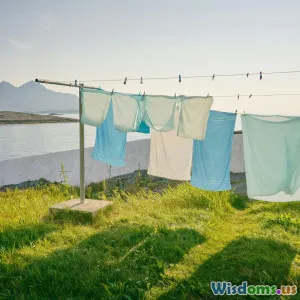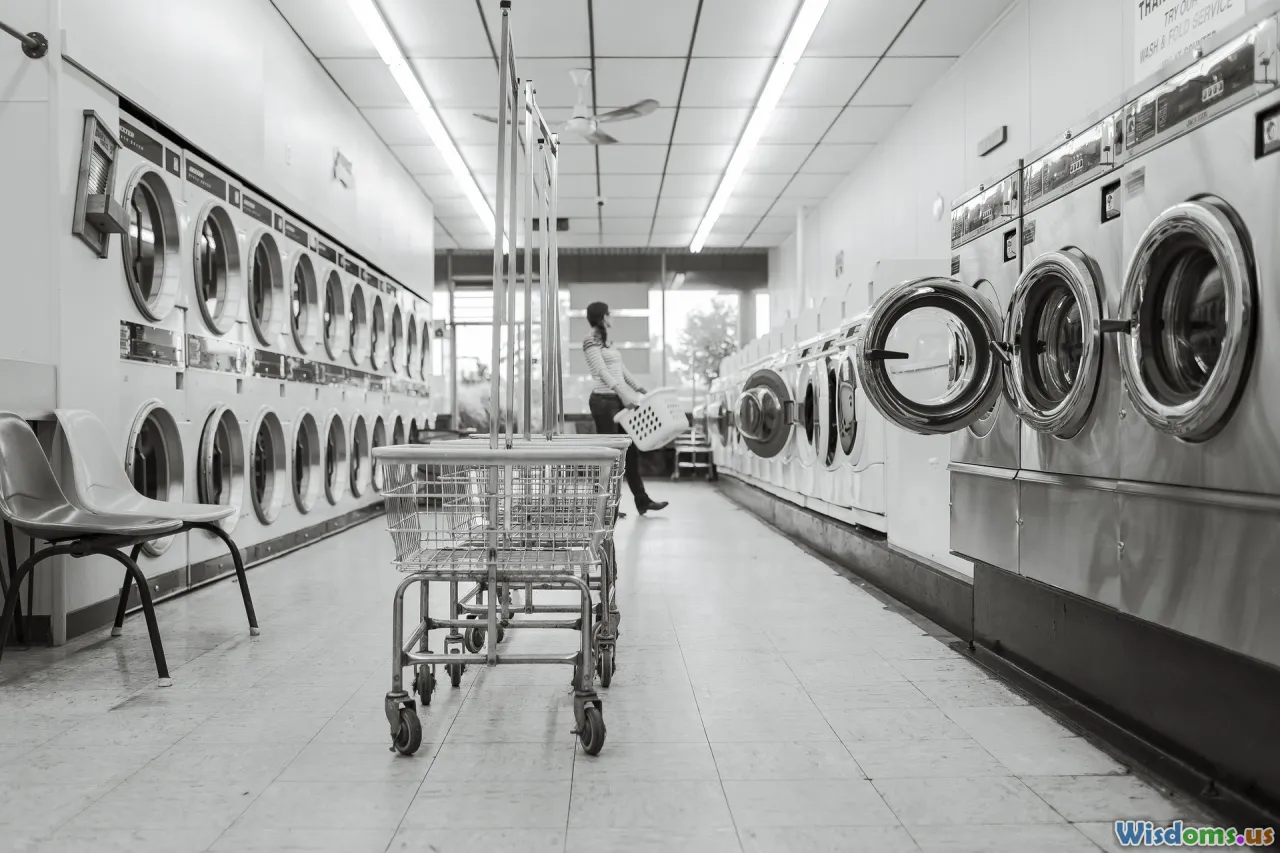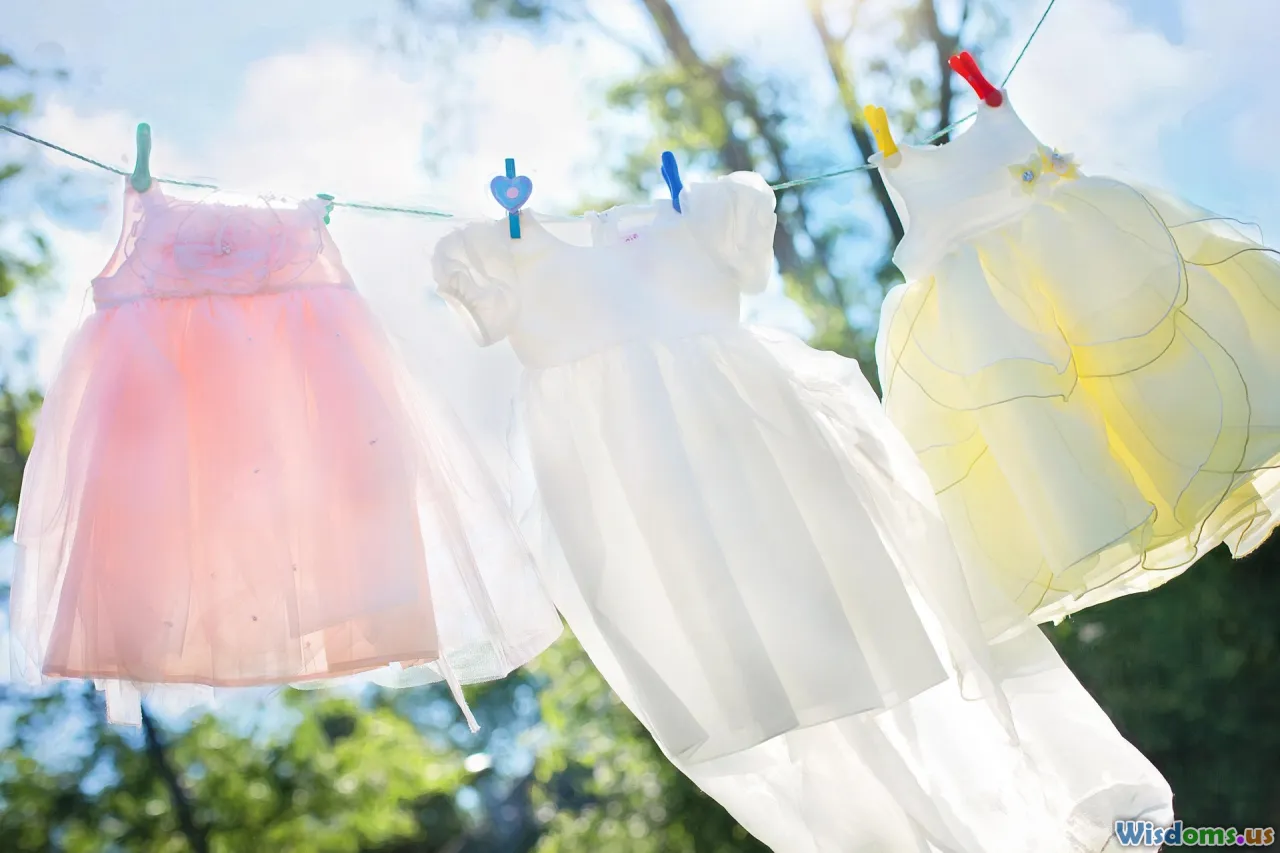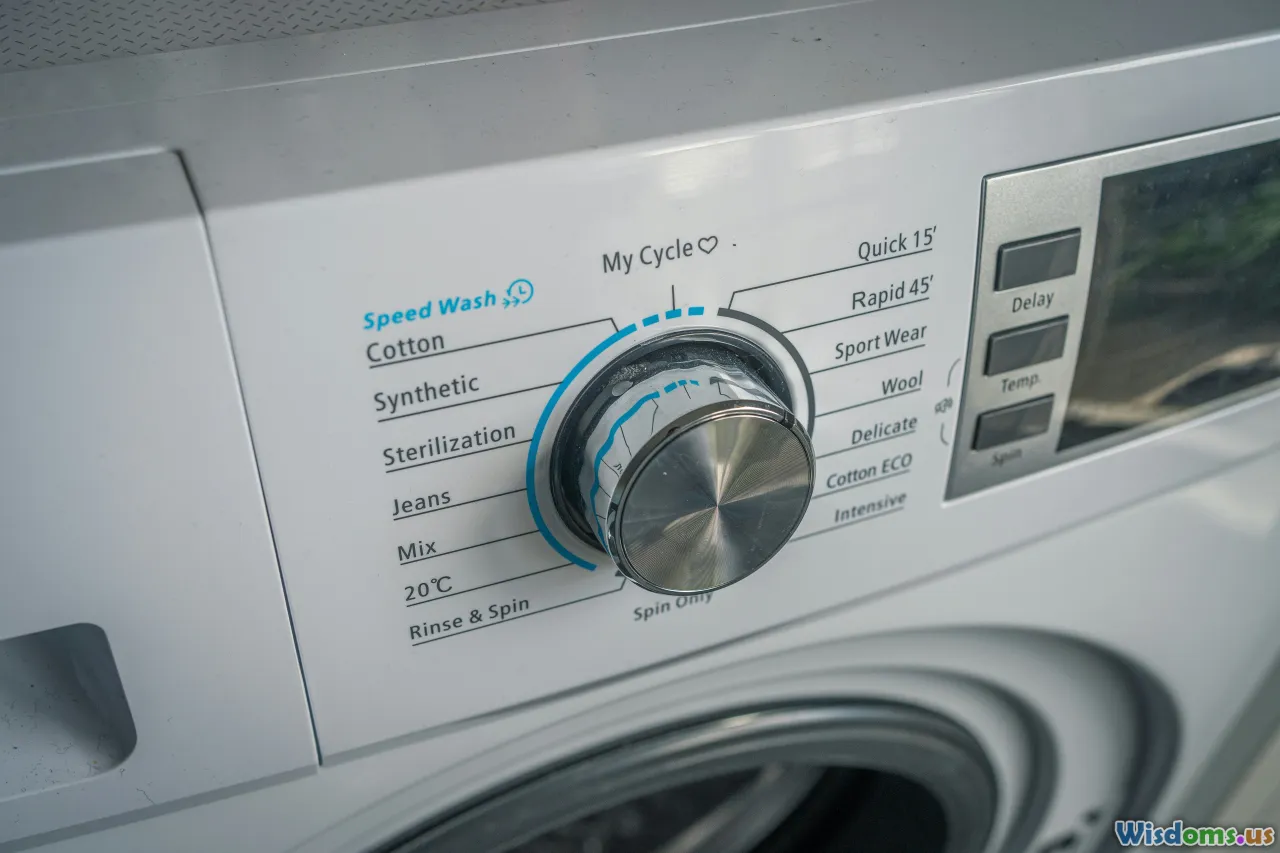
Why Doing Laundry At Night Saves You More Than Money
15 min read Discover how doing laundry at night can benefit your wallet and the environment beyond just savings. (0 Reviews)
Why Doing Laundry At Night Saves You More Than Money
As the hum of washing machines fades beneath the gentle hush of evening, an increasing number of households are switching up their laundry routines. Gone are the days when laundry was an afternoon-only chore, followed by folding under midday sun. If you've ever wondered whether there's more to nighttime laundry than just a break from family foot traffic in the laundry room, you're not alone. Those who embrace after-dark washing quickly discover advantages that reach far beyond just additional coins in their savings jar.
Laundry at night is about maximizing resources, boosting household harmony, and even being a subtle friend to the planet. Let's dive into all the ways after-hours washing transforms your daily routine in ways you may not expect.
The Economics of Off-Peak Energy

Many regions operate on tiered electricity pricing, a practice known as Time-of-Use (TOU) rates. During "peak" hours—typically from late afternoon to early evening—electricity is expensive due to high demand. By contrast, "off-peak" hours, often after 9 or 10 p.m., see a notable dip in cost. Doing laundry during these windows translates into tangible household savings.
Example: A family in California paying TOU rates might find that running a standard washing machine at 5 p.m. costs 35 cents per kWh, while at 10 p.m. the same load might cost only 12 cents per kWh. Over a year, if laundry is done thrice weekly at off-peak rates, this could save up to $100, not only lowering the utility bill but also encouraging thoughtful energy usage.
Some modern washers even have built-in timers—set a load before bed, and wake to fresh, ready-to-dry clothes, all at the lowest possible cost.
Better Performance and Longevity for Your Appliances

Laundry machines labor hardest when electrical demand is at its peak. During these periods, there’s greater risk of power surges or voltage fluctuations, which can stress motors and electronics. Late-night laundry means your machines draw energy when the grid is under less strain, leading to more consistent power supply.
Observation: Maintenance professionals often note that high electrical stress can shorten the lifespan of washers, causing unpredictable shut-downs or even electronic board failures. It’s not just life span; efficiency goes up, too. Washers can operate at full effectiveness for spin cycles and temperature control with a stable current flow nightmare interruptions.
“Quiet cycles”—available on many modern washers—also make nighttime loads less likely to wake family members, supporting a sleep-friendly routine.
Easing Family Schedules and Reducing Stress

Peak laundry hours often coincide with busy household living: preparing dinner, kids’ homework, catching up on work, and relaxation time. Shifting laundry into the night redistributes chores, carving out more family togetherness in daylight hours and making evenings less hectic.
Scenario: Meghan, a mother of two, pushed laundry past 9 p.m. When the kids were finally asleep, she folded in peaceful quiet. Her mornings—the previous battleground for matching socks—now ran smoothly, and she reported a boost in her overall well-being.
Some urban households with shared laundry rooms avoid competition and awkward hallway encounters by washing late, turning an everyday task into an opportunity for solitude.
Reducing Environmental Impact—A Quiet Gift to the Grid

Household electricity needs create demand spikes for utility companies—usually between 5 p.m. and 9 p.m.—sometimes forcing additional, less-efficient power stations to crank up, releasing more emissions. By moving chores to off-peak, you’re helping balance the grid, making energy distribution smoother, and nipping needless pollution in the bud.
Fact: During high-demand hours, utilities rely on "peaker plants"—these are often less efficient and use more polluting fuels. Washing your clothes during off-peak means most power will come from the base load—often greener, like hydro or wind.
A 2022 study by the International Energy Agency estimated that if just 10% of U.S. homes shifted 30% of their energy use to off-peak hours, it would cut carbon emissions equivalent to removing over 1 million cars from the road each year.
Protecting Clothes and Improving Wash Quality

It may surprise you, but high demand periods mean some washers might not perform as promised: unpredictable water pressure or slight voltage dips can lead to longer wash cycles or incomplete rinses. At night, with less strain on public utilities, your washing machine is more likely to operate at full efficiency, gently cleaning your favorite garments without mid-cycle hiccups.
For those who prefer drying clothes line-dry style indoors, cooler nighttime air and lower humidity often mean clothes dry more evenly—helping fight permanent wrinkles and extending fabric life. Further, less lint, fading, and color transfer are reported among those who wash at lower water temperatures often used for nighttime cycles.
Embracing Mindfulness in Home Management

After the day’s hustle, the simple act of doing laundry—measured and quiet after dark—can become an anchor in a mindful nighttime routine. There’s pleasure in drawing order from chaos at the end of the day: sorting garments in the calm, listening to the gentle drum of tumbling fabric.
Tip: Pair laundry time with an uplifting podcast or your favorite playlist. Some even use it for reflection or gratitude journaling while clothes whirl in the background.
Soon, washing clothes in the hush of midnight can feel like an act of self-care—a soothing prelude to restful sleep.
Safety and Security Considerations

Are there risks to after-dark washing? Responsible nighttime laundering is perfectly safe when you follow a few simple guidelines. Always:
- Ensure your washing machine is in good working order and free of electrical faults.
- Use delay-start features instead of running loads completely unattended, if possible.
- Keep a clear laundry area free of flammable materials (especially near dryers).
Manufacturers now encourage overnight programs—many new washers and dryers even detect imbalances and safely shut off. Like any appliance, using them per instructions ensures safe nights and even safer mornings.
How to Start a Nighttime Laundry Routine

Making the switch is easier than you think. Begin by checking your local utility’s peak pricing charts. Are there clear off-peak periods?
Actionable Steps:
- Schedule a Test Load: Pick one laundry night per week and track both bill impact and shift in chore stress.
- Set Appliance Timers: Experiment with your washer’s delay-start function (e.g., program it for 2 a.m.).
- Organize Supplies: Stock detergents, dryer sheets, and baskets for nighttime access—well-lit, safe, and within reach.
- Laundry Allies: If you have thick daytime schedules (work, children, or school), sync your nighttime loads with quieter evenings.
Real-World Story: Mark and Priya, partners with clashing work schedules, began alternating night laundry. As a bonus, their stained chef uniforms came out perfectly clean, every time, and their utility costs dipped noticeably within two months.
More Than Dollars: Strengthening Eco-Conscious Communities

The small change of nighttime washing has ripple effects in neighborhoods and buildings. If one household shifts, pressure on communal laundry room occupancy drops; if a few join in, hallways are quieter, energy spikes are gentler, and there’s less competition and contention over appliances.
Some eco-conscious communities even encourage nighttime washing through building initiatives, with digital sign-ups and friendly newsletters to keep noise low and environmental impact lower still. Consistent off-peak use can mean a more harmonious environment, as silence at night is prized by all.
Tech Innovations: Smart Appliances for Smarter Living

Modern technology is making nighttime laundry even more accessible and safe. Smart washing machines now offer:
- WiFi connectivity for remote monitoring (receive alerts when cycles finish).
- Automated off-peak mode (appliances auto-start when rates drop).
- Advanced noise suppression for ultra-quiet operation.
For instance, LG and Samsung offer app-based laundry managers: users can schedule or delay cycles directly from their phone, ensuring night runs start only when permitted by building regulations. In many metro cities, smart meters installed by the utilities pair with appliances to give real-time feedback on energy costs and encourage running machines at optimal times.
The Unexpected Perks: Bringing Order and Culture to Chores

Beyond the practical advantages—money saved, time reclaimed—the ritual of nighttime laundry brings a sense of rhythm to home management. It's about choosing the pace of your life and infusing intention into everyday responsibilities.
Cultural Insight: In many countries, laundry is strictly a daytime affair—dried under the sun as a social ritual. But urbanization and time constraints are shifting trends. In cities like Tokyo or London, nighttime laundry is now the norm among young professionals and large families seeking peace and efficiency after hours.
Clear routines foster shared responsibility; couples divvy up tasks in smaller, manageable bursts, leading to fewer laundry day quarrels and more team spirit.
Turn Laundry Into a Nightly Win

Laundry is universal—one of those chores no home escapes. But by moving your washes to the quiet, affordable comfort of night, you gain much more than just a few bucks off the electric bill. Your appliances run smoothly, routines are less frazzled, clothes last longer, and you give back—quietly—to the planet and your community.
Nighttime laundry is about so much more than money. It’s about maximizing every resource at your disposal, cultivating peace, and letting simple routines become acts of mindful self-care. So, the next time the house hushes and the world slows down, let your machines spin their quiet work—you might just find yourself savoring the end of the day.
Rate the Post
User Reviews
Popular Posts


















